Friday 5th July - The Earth, The Sky and Rivers of Flowers
Class Notes: The Five Elements
In some of my classes this week we practised rooting down to the earth through our feet, hands, or whichever part of the body was touching the ground, and also stretching up towards the sky through the spine and the crown of the head. We moved our awareness from the element of Earth with its grounding, stabilising qualities to the element of Air and its feelings of lifting and lightness.
Yoga's sister science Ayurveda is a holistic healing system that creates balance between mind, body and spirit through healthy eating, yogic exercise, preventative self-care and cleansing practices. The word Ayurveda translates from Sanskrit as 'knowledge of life' - it really helps you to get to know yourself, your own individual constitution and health, and how you interact with the world around you. One of the foundations of the system is understanding the five elements - space, air, fire, water and earth. Everything in the Universe, animate and inanimate, is made up of these elements and they show up in our yoga practice too. Each pose will have a combination of the elements and it adds a whole new dimension to the practice to explore which is the main element presenting itself in each pose.
Collectively, the five elements are known in yoga and Ayurveda as Panchmahabhoota ('panch' means five, 'maha' means supreme and 'bhoota' means powers) and individually they are as follows...
Space (Sanskrit name Akash): we create space when we do our yoga - in the body we want space to allow our joints, internal organs, muscles and tissues and everything else to work freely without restriction, and in the mind we want space to unscramble the busy thoughts so we can be peaceful and calm. We experience Akash when we rest in Savasana at the end of our practice - we let go of everything and enjoy a sense freedom.
Air (Sanskrit name Vayu): the element of air is experienced in our breathing - how we breathe as we move through the poses and sequences and how we breathe during Pranayama (our breathing practices). This attention to the breath is important - if we breathe smoothly and evenly then that will help the movement of the body to become smoother and more even too. We also become aware of the air element as we lift upwards, stretching the spine and the arms towards the vast expanse of the sky with a sense of lightness and buoyancy.
Fire (Sanskrit name Agni or Tejas): we stoke our internal fire deep within the body - stimulating both the digestive system and the abdominal muscles, and cultivating a sense of determination and power in mind and spirit too. When we use our core muscles and the Bhandas (locks) in our yoga practice it creates the heat and energy of the fire element.
Water (Sanskrit name Jala or Apas): this element shows up in our practice as fluidity, movement and rhythm. The regular practice of yoga brings mobility and elasticity to the body and we might find we have a little more flexibility of mind too.
Earth (Sanskrit name Bhumi or Prithvi): when we pay attention to the earth element in our practice we root down through the feet and hands to become more stable in the pose. We feel the support of the ground beneath us and the pull of gravity and so feel more grounded, stable and centred.
When you next unroll your mat to do your yoga look for the qualities of each element in each pose - it will help you to become more focused and feel that you're not just going through the movements but have a deeper connection to the practice itself.
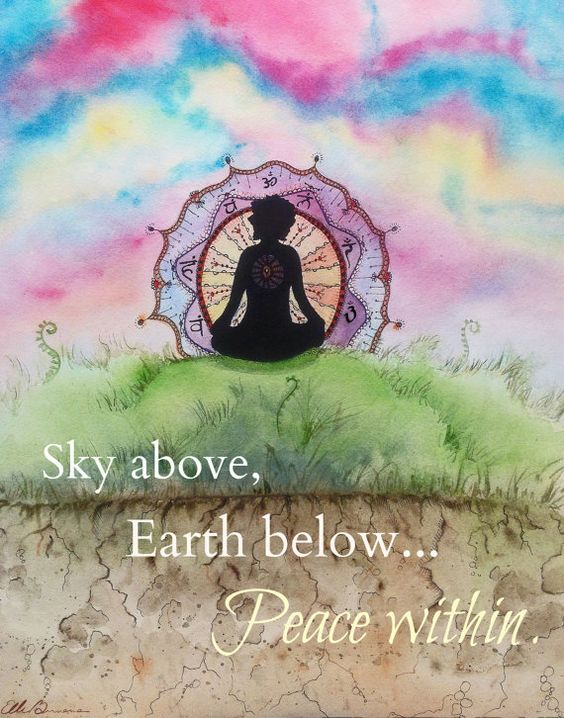 Artwork by Ellen Brenneman
Artwork by Ellen Brenneman
This Week's Mother Nature's Magic... Rivers and Bowls of Flowers
Mother Nature has had a helping hand here - 8 miles of verges and roundabouts have been sown with wildflower seeds by Rotherham Council. The flowering verges are not only beautiful to look at but provide valuable and much-needed habitat for bees and other pollinating insects - and they also save the council money!!
A spokesperson for the Council said “As well as being good news for the environment, the scheme has helped to save the council approximately £23,000 for each two-year cycle. Seeding every two years at the start of the season and cutting each year at the end is much less labour-intensive than the traditional approach of cutting the grass several times over the course of the year."
Everyone wins in this situation - the insects, the motorists and the people who live in the borough - let's ask our local councils if we can have some wildflower rivers too next year.
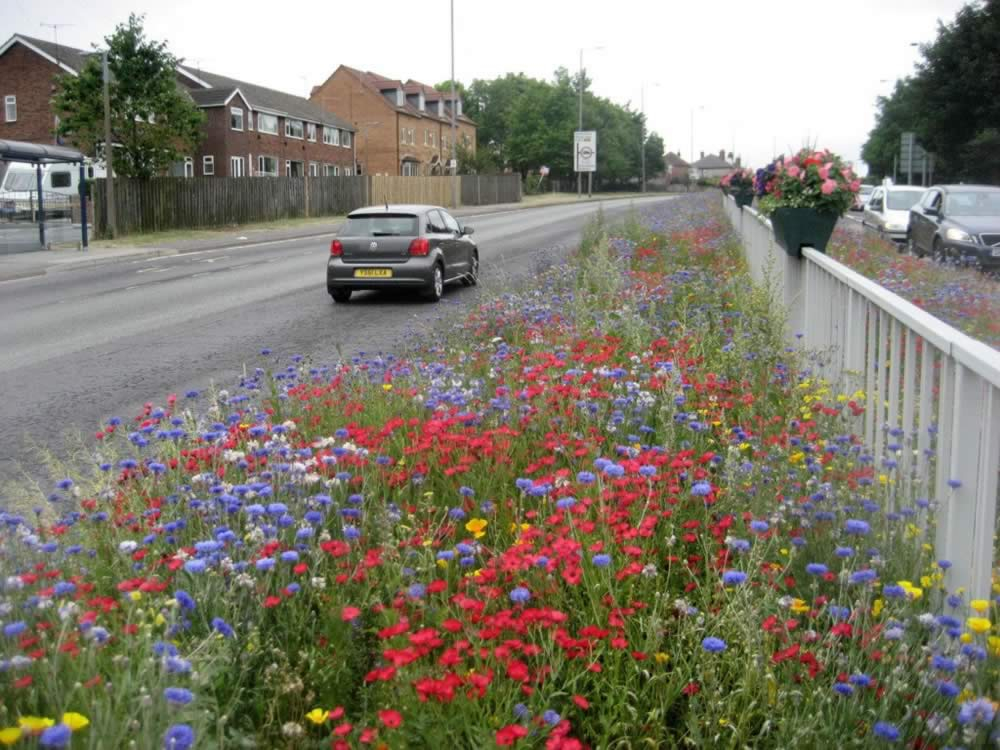
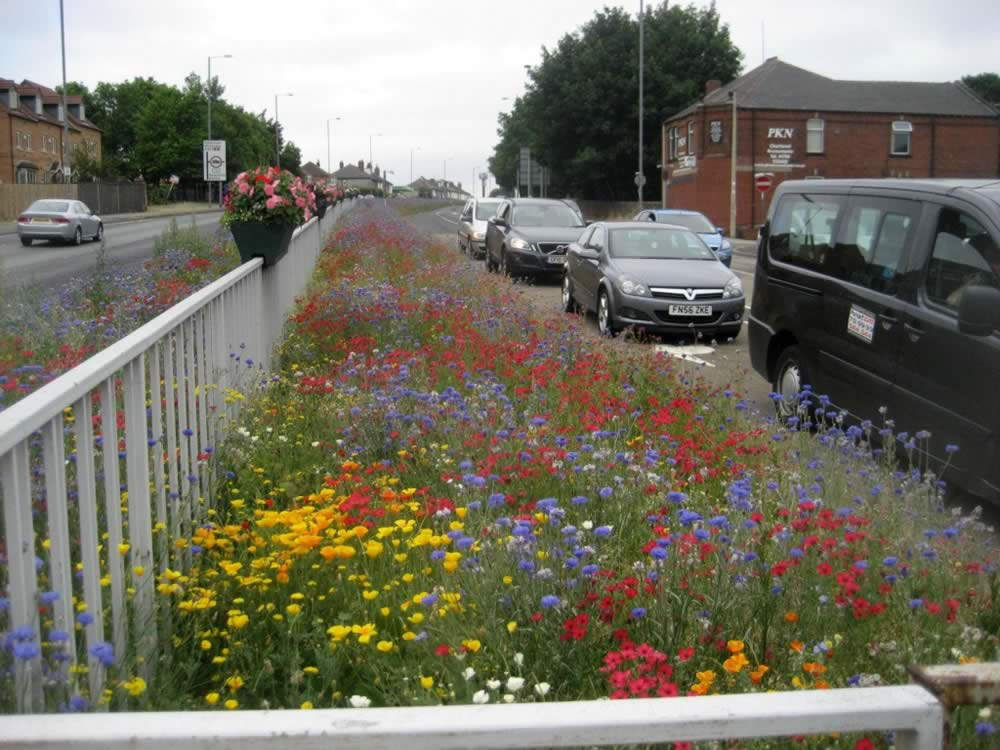
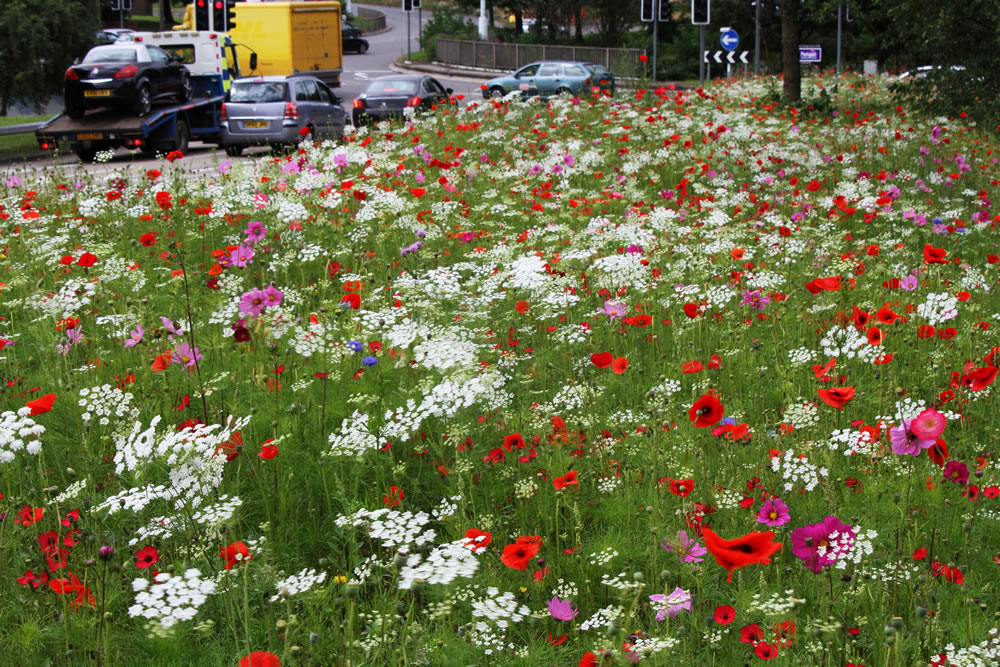
And just to squeeze in some more beautiful flowers, here's a picture of today's flower bowl which sits outside my Studio to welcome people to class - clematis around the outer edge, osteospermum, knautia and dianthus next and a gorgeous dahlia in the middle.
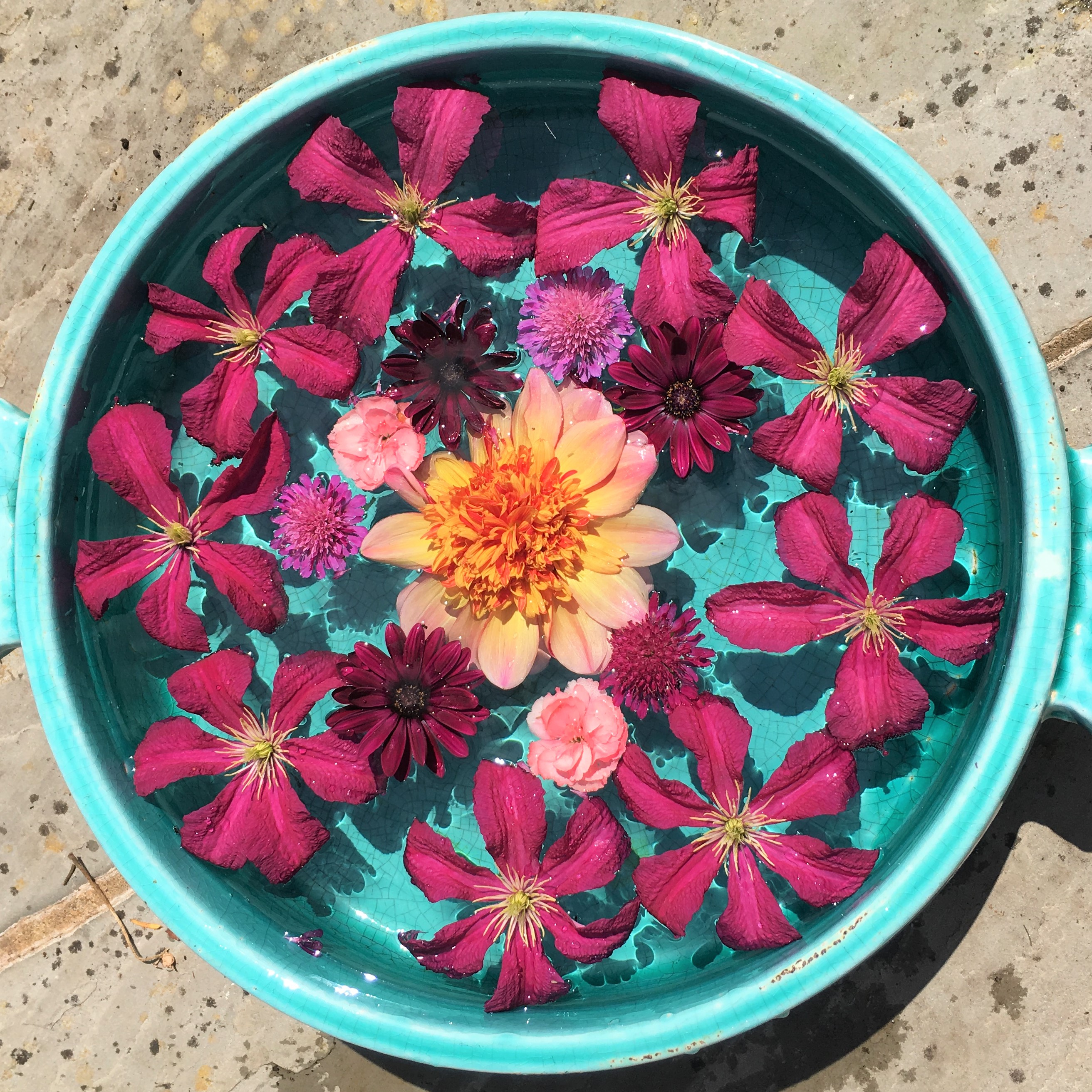
This Week's Recipe... Baked Beets with Coriander, Mint and Pistachios
This recipe comes from the free weekly paper you can pick up in Waitrose - it often has really good recipes and this one is delicious. I served it as a salad with a barbeque last weekend and everyone loved it. It's best to use fresh beetroots which, although they are a bit messy to prepare, have a more intense flavour, but you could use ready-cooked ones if you need to.
You will need:
750g small raw beetroot
1 tablespoon olive oil
For the relish:
50g shelled, unsalted pistachio nuts, roughly chopped
3 tablespoons chopped coriander
2 tablespoons torn mint leaves
3 tablespoons extra virgin olive oil
Lemon juice to taste
And here's how to make it:
Heat the oven to 180c, gas mark 4. Trim and wash the beets and put them into a foil parcel (best to use a double layer) big enough to be pulled up round the beets and sealed. Before closing the package drizzle over some olive oil, add a splash of water and season. Seal the edges of the package and put it into a roasting tin.
Bake for 40-60 minutes. It can take even longer for the beets to become tender so check regularly (you don't want them to get mushy though). Test they are done with the point of a knife. When the beets are cool enough to handle, slip off their skins (this is the messy bit - you can wear rubber gloves if you don't want to get your hands stained) and cut them into halves or quarters, depending on their size. Put onto a serving dish.
To make the relish, bash the nuts and garlic in a mortar with some salt. Add the herbs and bash a bit more to break everything down (you want to end up with a rough mixture, not a finely ground paste). Stir in the oil and lemon juice, and season to taste. Spoon the relish over the beetroot to finish.
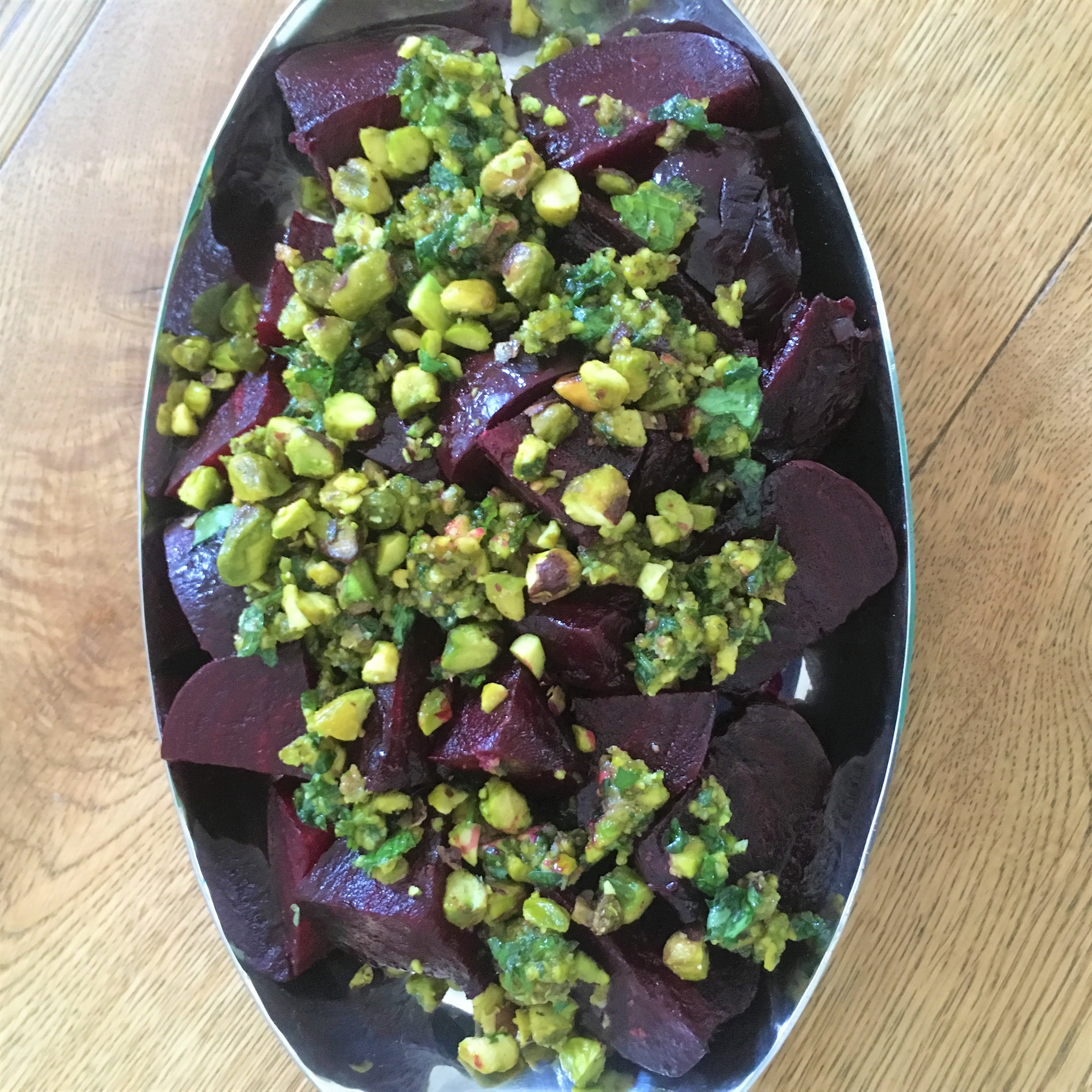
This Week's Musical Offering...
End of Sky by Hang Massive - I play this quite often in class to accompany Sun Salutations or flow sequences as it has a nice steady rhythm. The lovely sounds come from a hang drum - if you haven't seen one of these instruments before you'll see them, and how they are played, in the video below...
This Week's Video... Seven Worlds One Planet
If you watched Glastonbury on TV last weekend (or maybe you were even actually there experiencing this amazing festival in person!) you may have seen David Attenborough get the most enormous welcome and applause when he took to the stage for a brief appearance. He was there to tell us about 'Seven Worlds One Planet', the new BBC series which will be on our screens in the autumn. The 2017 BBC series Blue Planet II has been the catalyst for the plastic free movement which has gathered so much momentum and changed the way many of us live. It showed us all the extent of the plastic problem and how we are each responsible, whether we accept that or not, for the demise of our oceans and the creatures within them. This year Glastonbury Festival went plastic-free which meant, so David Attenborough told us, 1 million less empty, wasteful plastic bottles. I think we have all got this message now and are doing what we can to make changes to our lifestyles in the hope that we can restore some of the damage we have done.
(As an aside, if you live in Bookham you can take empty crisp packets and sliced bread bags to 'The Grange @ No 5' (the craft shop run by The Grange in Church Road along by the Post Office) where they will get them recycled and receive some funds in return.)
This new series, which will undoubtedly have superb videography, music once again by Hans Zimmer and the well-loved narration of David Attenborough will focus on the seven continents of planet Earth, showing us the diverse landscapes and the creatures that live in them. It will also show us how mankind is wilfully destroying them. Let's hope that 'Seven Worlds One Planet' will also be a catalyst and that us ordinary people continue move towards sustainable, ethical living and to pressure governments and large corporations to change their greedy, destructive ways too.
Have a wonderful weekend in the sun... Until next time...






